|
Books Should Be Free Loyal Books Free Public Domain Audiobooks & eBook Downloads |
|
|
Books Should Be Free Loyal Books Free Public Domain Audiobooks & eBook Downloads |
|
Non-fiction |
|---|
|
Book type:
Sort by:
View by:
|
By: G. K. Chesterton (1874-1936) | |
|---|---|
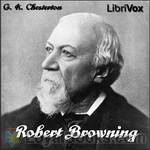 Robert Browning
Robert Browning
There is an old anecdote, probably apocryphal, which describes how a feminine admirer wrote to Browning asking him for the meaning of one of his darker poems, and received the following reply: “When that poem was written, two people knew what it meant–God and Robert Browning. And now God only knows what it means. | |
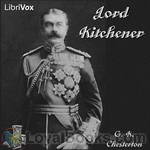 Lord Kitchener
Lord Kitchener
“The paradox of all this part of his life lies in this–that, destined as he was to be the greatest enemy of Mahomedanism, he was quite exceptionally a friend of Mahomedans.” | |
By: Alfred Marshall (1842-1924) | |
|---|---|
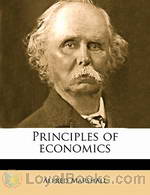 Principles of Economics
Principles of Economics
“The most valuable of all capital is that invested in human beings.” An uncannily prophetic quote from an 1890 book, Principles of Economics by Alfred Marshall presents an idea that has been accepted by major corporations and governments all over the world today. People's understanding of market behavior and how industries operate has its roots in the work done by European economists more than a century ago. Little has changed in terms of principles, though the effects of globalization and technology resulted an unmistakable impact on how business is done today... | |
By: Louisa May Alcott (1832-1888) | |
|---|---|
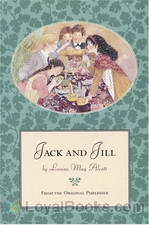 Jack and Jill
Jack and Jill
Louisa May Alcott, more famously known for her Little Women series, takes a familiar nursery rhyme and creates a whole novel out of it in one of her last books Jack and Jill: A Village Story. Though she continued to publish under the penname AM Barnard, this book probably marked the end of a particular writing phase in 1880. Jack and Jill is set in the fictional Harmony Village. On a December afternoon, the youngsters of the village are out enjoying the bracing cold and snow. The bright winter shines down as they have fun skating and sledding... | |
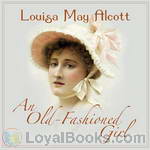 An Old-Fashioned Girl
An Old-Fashioned Girl
Polly Milton, a 14-year-old country girl, visits her friend Fanny Shaw and her wealthy family in the city for the first time. Poor Polly is overwhelmed by the splendor at the Shaws’ and their urbanized, fashionable lifestyles, fancy clothes and some other habits she considers weird and, mostly, unlikable. However, Polly’s warmth, support and kindness eventually win her the hearts of all the family members. Six years later, Polly comes back to the city to become a music teacher. | |
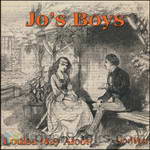 Jo's Boys
Jo's Boys
Jo’s Boys is the third book in the Little Women trilogy by Louisa May Alcott, published in 1886. In it, Jo’s “children”, now grown, are caught up in real world troubles. All three books – although fiction – are highly autobiographical and describe characters that were really in Alcott’s life. This book contains romance as the childhood playmates become flirtatious young men and women. The characters are growing up, going out into the world and deciding their futures. | |
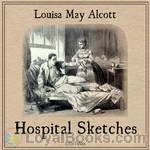 Hospital Sketches
Hospital Sketches
Alcott in 1862 served as a nurse in Georgetown, D.C during the Civil War. She wrote home what she observed there. Those harrowing and sometimes humorous letters compiled make up Hospital Sketches. | |
By: Jesse Lyman Hurlbut (1843-1930) | |
|---|---|
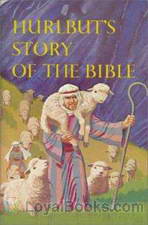 Hurlbut's Story of the Bible
Hurlbut's Story of the Bible
As a parent, many of us would like our children to be familiar with our sacred books, no matter to which religion or faith we belong. However, very young children may find the language and the ideas quite difficult to assimilate. Yet the stories are so memorable and valuable that we want our children to know them as early as possible. Published in 1905, Hurlbut's Story of The Bible – 1 is a wonderful compilation of some of the most important and delightful stories to be found in both the Old and New Testaments... | |
By: Elizabeth Gaskell (1810-1865) | |
|---|---|
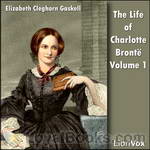 The Life Of Charlotte Brontë
The Life Of Charlotte Brontë
Charlotte Brontë was a British author, the eldest of the three famous Brontë sisters who have become standards of English literature. She is best known for her novel Jane Eyre, one of the greatest classics of all time. Just two years after Charlotte’s death, her friend Elizabeth Gaskell wrote her biography. Want to know more about Charlotte Brontë? If you do, please read this biography. | |
By: Edith Wharton (1862-1937) | |
|---|---|
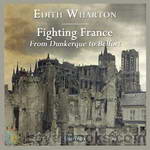 Fighting France, from Dunkerque to Belfort
Fighting France, from Dunkerque to Belfort
American novelist Edith Wharton was living in Paris when World War I broke out in 1914. She obtained permission to visit sites behind the lines, including hospitals, ravaged villages, and trenches. Fighting France records her travels along the front in 1914 and 1915, and celebrates the indomitable spirit of the French people. | |
By: Henry Gray | |
|---|---|
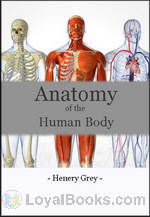 Anatomy of the Human Body
Anatomy of the Human Body
Henry Gray’s classic anatomy textbook was first published in 1858 and has been in continuous publication ever since, revised and expanded through many successive editions. This recording is of the public-domain 1918 US edition (some information may be outdated). | |
By: Stephen Leacock (1869-1944) | |
|---|---|
 Chronicles of Canada -- Dawn of Canadian History: Aboriginal Canada
Chronicles of Canada -- Dawn of Canadian History: Aboriginal Canada
Most readers of Stephen Leacock's works are familiar with his witty and humorous writings, but few may be aware that he was also a gifted teacher, political ideologue, economist and fiction writer. Though he wrote six books on Canadian history, none of them attained the status of a standard text on the subject and were regarded more as opinion pieces without much academic foundation. Yet, the Chronicles of Canada series by Stephen Leacock remains an interesting and entertaining read. In this volume, Dawn of Canadian History: Aboriginal Canada, which is part of a thirty-two book series of short and simple essays, Leacock explores the little known origins of Canada's past... | |
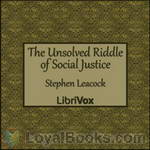 The Unsolved Riddle of Social Justice
The Unsolved Riddle of Social Justice
This lengthy political essay by noted Canadian humourist Stephen Leacock was written while he was professor of political economy at McGill University. He argues for a middle ground between individualism/capitalism and pure socialism. Listeners in the early 21st century may find this 90-year old essay oddly topical. | |
By: George MacDonald | |
|---|---|
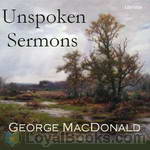 Unspoken Sermons
Unspoken Sermons
George MacDonald was a Scottish author, poet, and Christian minister. In his day he was considered one of the great Victorian authors on par with Dickens, Thackeray, Kipling and the like. His reputation as an author, however, has not fared as well largely because of the ubiquitous and fervent presence of religion throughout his works.MacDonald's theology, though sprinkled liberally throughout his fairly substantial number of books, is perhaps nowhere more palpable than in Unspoken Sermons. These sermons, though by no means amongst the most popular of MacDonald's work, have had theological impact from their first appearance... | |
By: Friedrich Nietzsche (1844-1900) | |
|---|---|
 Beyond Good and Evil
Beyond Good and Evil
Beyond Good and Evil, by Friedrich Nietzsche A searing indictment of concepts like “truth” and “language” Beyond Good and Evil, by Friedrich Nietzsche is a deeply thought provoking book that forms one of the keystones of modern thought and politics. In this book, Nietzsche takes the position that our subservience to fixed perspectives that are forced on us by our language and our ideals make us incapable of perceiving reality. He propounds the theory that ideals are not fixed but change over time, often dramatically, and end up becoming the exact opposite of what they originally were... | |
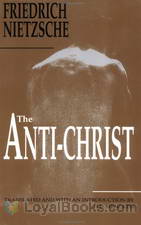 The Antichrist
The Antichrist
Save for his raucous, rhapsodical autobiography, Ecce Homo, The Antichrist is the last thing that Nietzsche ever wrote, and so it may be accepted as a statement of some of his most salient ideas in their final form. Of all Nietzsche’s books, The Antichrist comes nearest to conventionality in form. It presents a connected argument with very few interludes, and has a beginning, a middle and an end. | |
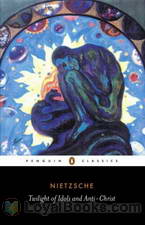 The Twilight of the Idols or How to Philosophise with the Hammer
The Twilight of the Idols or How to Philosophise with the Hammer
Of The Twilight of the Idols, Nietzsche says in Ecce Homo: “If anyone should desire to obtain a rapid sketch of how everything before my time was standing on its head, he should begin reading me in this book. That which is called ‘Idols’ on the title-page is simply the old truth that has been believed in hitherto. In plain English, The Twilight of the Idols means that the old truth is on its last legs.” Certain it is that, for a rapid survey of the whole of Nietzsche’s doctrine, no book, save perhaps the section entitled “Of Old and New Tables” in Thus Spake Zarathustra, could be of more real value than The Twilight of the Idols... | |
By: Joseph Conrad (1857-1924) | |
|---|---|
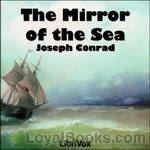 The Mirror of the Sea
The Mirror of the Sea
The Mirror of the Sea is a collection of autobiographical essays first published in various magazines 1904-6. Conrad early in his life earned his bread as a Master Mariner in sailing ships. In his Author’s Note to this work, Conrad states,”Beyond the line of the sea horizon the world for me did not exist….Within these pages I make a full confession not of my sins but of my emotions. It is the best tribute my piety can offer to the ultimate shapers of my character, convictions, and, in a sense, destiny—to the imperishable sea, to the ships that are no more, and to the simple men who have had their day.” | |
By: Harriet Beecher Stowe (1811-1896) | |
|---|---|
 American Woman's Home
American Woman's Home
| |
By: Jacob Abbott (1803-1879) | |
|---|---|
 Alexander the Great
Alexander the Great
Tutored by Aristotle, compelled to ascend the throne at the age of 20 when his illustrious father was assassinated, driven by a passion for expanding the borders of his tiny kingdom, Alexander of Macedon was one of the most towering figures of ancient history. He is brought to vivid life in this gripping volume by the American children's writer Jacob Abbott. In his short but eventful life, the young Macedonian king went on to rule over one of the most powerful and largest empires in the ancient world, breaking the hegemony of the powerful Persian dynasty of Darius... | |
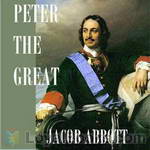 Peter the Great
Peter the Great
“There are very few persons who have not heard of the fame of Peter the Great, the founder, as he is generally regarded by mankind, of Russian civilization. The celebrity, however, of the great Muscovite sovereign among young persons is due in a great measure to the circumstance of his having repaired personally to Holland, in the course of his efforts to introduce the industrial arts among his people, in order to study himself the art and mystery of shipbuilding, and of his having worked with his own hands in a ship-yard there... | |
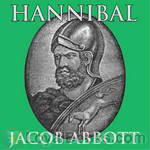 Hannibal
Hannibal
There are certain names which are familiar, as names, to all mankind; and every person who seeks for any degree of mental cultivation, feels desirous of informing himself of the leading outlines of their history, that he may know, in brief, what it was in their characters or their doings which has given them so widely-extended a fame. Consequently, great historical names alone are selected; and it has been the writer's aim to present the prominent and leading traits in their characters, and all the important events in their lives, in a bold and free manner, and yet in the plain and simple language which is so obviously required in works which aim at permanent and practical usefulness... | |
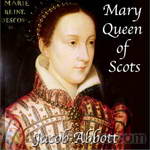 Mary Queen of Scots
Mary Queen of Scots
There are certain names which are familiar, as names, to all mankind; and every person who seeks for any degree of mental cultivation, feels desirous of informing himself of the leading outlines of their history, that he may know, in brief, what it was in their characters or their doings which has given them so widely-extended a fame. Consequently, great historical names alone are selected; and it has been the writer’s aim to present the prominent and leading traits in their characters, and all the important events in their lives, in a bold and free manner, and yet in the plain and simple language which is so obviously required in works which aim at permanent and practical usefulness... | |
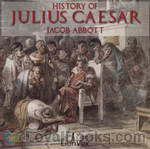 History of Julius Caesar
History of Julius Caesar
The book chronicles the extraordinary life and leadership of Rome’s Emperor Julius Caesar, from his early years to his assassination. | |
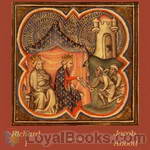 Richard I
Richard I
There are certain names which are familiar, as names, to all mankind; and every person who seeks for any degree of mental cultivation, feels desirous of informing himself of the leading outlines of their history, that he may know, in brief, what it was in their characters or their doings which has given them so widely-extended a fame. Consequently, great historical names alone are selected; and it has been the writer’s aim to present the prominent and leading traits in their characters, and all the important events in their lives, in a bold and free manner, and yet in the plain and simple language which is so obviously required in works which aim at permanent and practical usefulness... | |
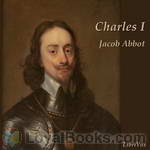 Charles I
Charles I
There are certain names which are familiar, as names, to all mankind; and every person who seeks for any degree of mental cultivation, feels desirous of informing himself of the leading outlines of their history, that he may know, in brief, what it was in their characters or their doings which has given them so widely-extended a fame. Consequently, great historical names alone are selected; and it has been the writer’s aim to present the prominent and leading traits in their characters, and all the important events in their lives, in a bold and free manner, and yet in the plain and simple language which is so obviously required in works which aim at permanent and practical usefulness... | |
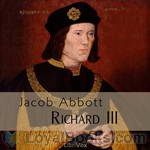 Richard III
Richard III
Jacob Abbott chronicles the unspeakably treacherous rise of Richard III to the throne of England in the midst of the war between the Yorks and the Lancasters and his ultimate fall on the Field of Bosworth. (Introduction by Cathy Barratt) | |
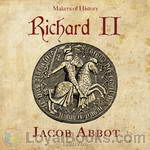 Richard II, Makers of History
Richard II, Makers of History
Chronicles the life of Richard II, born in 1367 in Bordeaux, France, who later wore the crown of King of England. | |
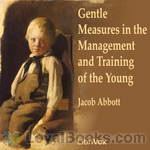 Gentle Measures in the Management and Training of the Young
Gentle Measures in the Management and Training of the Young
Subtitled, "The principles on which a firm parental authority may be established and maintained, without violence or anger, and the right development of the moral and mental capacities be promoted by methods in harmony with the structure and the characteristics of the juvenile mind." This book gives practical advice on how to raise children using "gentle measures" that do not damage the children's emotions or self esteem. Most of the information is as relevant and practical today as it was when published in 1871. | |
 The Teacher Or, Moral Influences Employed in the Instruction and Government of the Young
The Teacher Or, Moral Influences Employed in the Instruction and Government of the Young
| |
By: Henry David Thoreau (1817-1862) | |
|---|---|
 Walden
Walden
Two years, two months and two days! This is what forms the time line of one man's quest for the simple life and a unique social experiment in complete self reliance and independence. Henry David Thoreau published Walden in 1884. Originally drafted as a series of essays describing a most significant episode in his life, it was finally released in book form with each essay taking on the form of a separate chapter. Thoreau's parents were in financial straights, but rich intellectually and culturally... | |
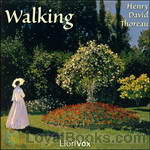 Walking
Walking
This was originally a lecture given by Thoreau in 1851 at the Concord lyceum titled “The Wild” . He revised it before his death and it was included as part of the June 1862 edition of Atlantic Monthly. This essay appears, on the surface, to be simply expounding the qualities of Nature and man’s place therein. Through this medium he not only touches those subjects, but with the implications of such a respect for nature, or lack thereof. | |
 Wild Apples
Wild Apples
| |
By: Henry James (1843-1916) | |
|---|---|
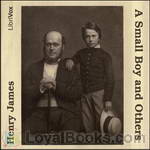 A Small Boy and Others
A Small Boy and Others
A Small Boy and Others is a book of autobiography by Henry James published in 1913. The book covers James’s earliest years and discusses his intellectually active family, his intermittent schooling, and his first trips to Europe. | |
By: John B. Bury (1861-1927) | |
|---|---|
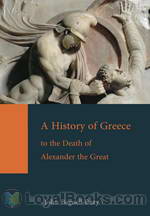 A History of Greece to the Death of Alexander the Great
A History of Greece to the Death of Alexander the Great
For the Irish historian John Bagnell Bury, history should be treated as a science and not a mere branch of literature. Many contemporary histories written in the late nineteenth and early twentieth century were poetic and heroic in tone, blending fact and fiction, myths and legends. They sometimes relied on sources from Shakespeare and classical poets. For Bury, the facts of history may be legendary or romantic in nature, but they should be recounted in a scholarly and non-judgmental manner, without the accompanying emotions... | |
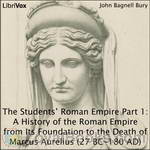 The Students' Roman Empire
The Students' Roman Empire
The writings of J. B. Bury (1861-1927), on subjects ranging from ancient Greece to the 19th-century papacy, are at once scholarly and accessible to the layman. This work covers the period from the beginning of the Roman Empire until Gibbon begins; from Augustus through Marcus Aurelius and the Antoinine Emporers. | |
By: Jonathan Swift (1667-1745) | |
|---|---|
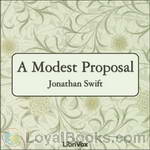 A Modest Proposal
A Modest Proposal
A satirical essay written by one of the most renowned satirists, Jonathan Swift, A Modest Proposal expresses the author’s exasperation with the ill treatment of impoverished Irish citizens as a result of English exploitation and social inertia. Furthermore, Swift ventilates the severity of Ireland’s political incompetence, the tyrannical English policies, the callous attitudes of the wealthy, and the destitution faced by the Irish people. Focusing on numerous aspects of society including government exploitation, reckless greed, hypocrisy, apathy, and prejudice, the essay successfully exemplifies Swift’s satirical skills... | |
By: Anthony Trollope (1815-1882) | |
|---|---|
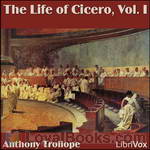 The Life of Cicero
The Life of Cicero
Marcus Tullius Cicero (106-43BC) was an orator, statesman, philosopher and prolific correspondent, who rose as a ‘new man’ in Rome in the turbulent last years of its republican government. Anthony Trollope, best known as a novelist, admired Cicero greatly and wrote this biography late in life in order to argue his virtues against authors who had granted him literary greatness but questioned his strength as a politician and as a man. He takes a personal approach, affording us an insight into his own mind and times as well as those of his subject... | |
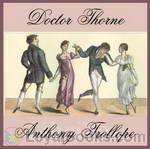 Doctor Thorne
Doctor Thorne
MANUAL OF SURGERY, OXFORD MEDICAL PUBLICATIONSBY ALEXIS THOMSON, F.R.C.S.Ed.PREFACE TO SIXTH EDITION Much has happened since this Manual was last revised, and many surgical lessons have been learned in the hard school of war. Some may yet have to be unlearned, and others have but little bearing on the problems presented to the civilian surgeon. Save in its broadest principles, the surgery of warfare is a thing apart from the general surgery of civil life, and the exhaustive literature now available on every aspect of it makes it unnecessary that it should receive detailed consideration in a manual for students... | |
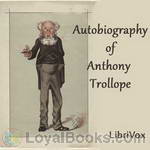 Autobiography of Anthony Trollope
Autobiography of Anthony Trollope
Anthony Trollope's autobiography will delight you whether or not you've read (or listened to) any of his many works. His honest if self-deprecating tone is at times hilarious and at times piteously moving. His detailed descriptions of his writing process and his philosophy of writing as work rather than art are fascinating. Fans of Trollope will enjoy learning the man's perceptions of his novels' shortcomings and triumphs. Anyone will appreciate learning about his years devoted to churning out literature for profit while working full time with the post office. | |
 Hunting Sketches
Hunting Sketches
| |
By: Fyodor Dostoyevsky (1821-1881) | |
|---|---|
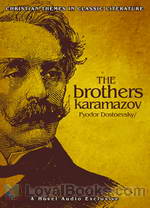 The Brothers Karamazov
The Brothers Karamazov
Set in 19th century Russia, The Brothers Karamazov (Russian: Братья Карамазовы) is the last novel written by the illustrious author Fyodor Dostoyevsky who died a few months before the book's publication. The deeply philosophical and passionate novel tells the story of Fyodor Karamazov, an immoral debauch whose sole aim in life is the acquisition of wealth. Twice married, he has three sons whose welfare and upbringing, he cares nothing about. At the beginning of the story, Dimitri Karamazov, the eldest son who is now a twenty-eight year old war veteran, returns to his home town to claim the inheritance left to him by his dead mother... | |
By: Niccolò Machiavelli (1469-1527) | |
|---|---|
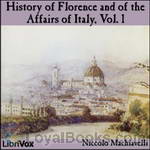 History of Florence and of the Affairs of Italy
History of Florence and of the Affairs of Italy
History of Florence and of the Affairs of Italy is an historical account by Niccolò Machiavelli. Toward the end of 1520, the Cardinal Giulio of Medici, later Pope Clement VII, offered Machiavelli the appointment to write a history of Florence. Although Machiavelli was reluctant to accept, accepting was his only way to regain the good graces of the Medici who had regained power and were in a position to offer him employment and protection. Doing the history also provided a way for Machiavelli’s views to become the “official” history of Florentine and Italian affairs. Once completed, the work was presented officially to Giulio, now Pope, in May of 1526. | |
By: James Allen (1864-1912) | |
|---|---|
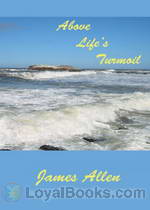 Above Life's Turmoil
Above Life's Turmoil
Combining elements of Christianity, Buddhism and Hinduism with concepts dealing with self discipline, motivation and the power of positive thinking, James Allen's 1910 inspirational book Above Life's Turmoil is a pioneering work in self-help literature. One of the factors that makes the book appealing is that it doesn't purport to be a magic formula that will help you to get whatever you want. Instead, it aims to give the reader self knowledge and self conquest which will ultimately lead to inner peace in a turbulent world... | |
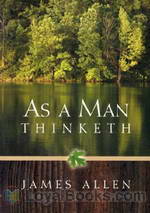 As a Man Thinketh
As a Man Thinketh
“A man is literally what he thinks, his character being the complete sum of all his thoughts,” is one of the quotes from James Allen's classic self help books, As a Man Thinketh. Published in 1902, it provides many more such insightful concepts on the power of thought and its effect on a human being's personality and behavior. This volume is more of a literary essay than a complete book and its title is based on a Biblical proverb, “As a man thinketh in his heart, so is he.” Taking this piece of ancient wisdom further, James Allen explores the far-reaching effects of the inner workings of a person's mind and motivation... | |
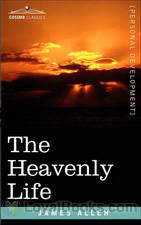 The Heavenly Life
The Heavenly Life
Many of us live with the belief that we can achieve heaven or the ultimate peace and happiness only in an after-life. Many of us believe that heaven is a place that is far removed from earth. However, The Heavenly Life by James Allen seeks to convince us that heaven and hell are both here on earth and they lie within our own selves. A deeply moving, insightful and philosophical book that explores the ideas of living with integrity, in harmony with our fellows and in finding the power of love and integrity, The Heavenly Life was first published in 1903... | |
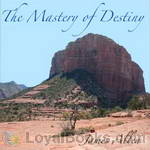 The Mastery of Destiny
The Mastery of Destiny
James Allen’s inspirational and thought-provoking books have inspired millions. In The Mastery of Destiny, he instructs readers on developing self-control, willpower, concentration, and motivation. Through mental discipline, we can create a life of unending happiness, prosperity, and, most importantly, self-mastery. | |
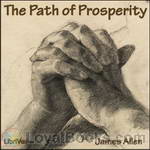 The Path of Prosperity
The Path of Prosperity
Summary from The Path of Prosperity: I looked around upon the world, and saw that it was shadowed by sorrow and scorched by the fierce fires of suffering. And I looked for the cause. I looked around, but could not find it; I looked in books, but could not find it; I looked within, and found there both the cause and the self-made nature of that cause. I looked again, and deeper, and found the remedy. I found one Law, the Law of Love; one Life, the Life of adjustment to that Law; one Truth, the truth of a conquered mind and a quiet and obedient heart... | |
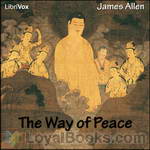 The Way of Peace
The Way of Peace
The Way of Peace is your guide to the power of meditation; self and truth; the acquirement of spiritual power; the realization of selfless love; entering into the infinite; saints, sages, and saviors; the law of service; and the realization of perfect peace. | |
By: Walt Whitman (1819-1892) | |
|---|---|
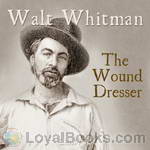 The Wound Dresser
The Wound Dresser
The Wound Dresser is a series of letters written from the hospitals in Washington by Walt Whitman during the War of the Rebellion to The New York Times, the Brooklyn Eagle and his mother, edited by Richard Maurice Burke, M.D., one of Whitman's literary executors. | |
By: Edith Nesbit (1858-1924) | |
|---|---|
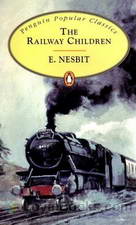 Railway Children
Railway Children
A thrilling spy story, a children's adventure, a charming portrait of early twentieth century life in London and the countryside and a heart warming family tale are all combined in this classic of children's literature The Railway Children by E Nesbit. The book has remained on the list of the best-loved children's books ever since it was first published as a serial story in The London Magazine in 1905. Later, it was published in book form and won acclaim from critics and readers across the world for its wonderful elements of character and plot... | |
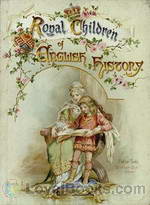 Royal Children of English History
Royal Children of English History
From the first chapter: “History is a story, a story of things that happened to real live people in our England years ago; and the things that are happening here and now, and that are put in the newspapers, will be history for little children one of these days. And the people you read about in history were real live people, who were good and bad, and glad and sorry, just as people are now-a-days.” E. Nesbit writes about some of the people behind the names, dates and battles of English History in this lovely book for older children. The original book contains some beautiful illustrations and you can see those by clicking the ‘Gutenberg’ link below. | |
 My School Days
My School Days
A short memoir about the author's school days, serialised in The Girl's Own Paper from October 1896 to September 1897. It includes stories about teachers, fellow pupils, the things that scared her most as a child (and even as an adult) and a vivid account of the best summer of her childhood.Summary by Cori Samuel. | |
By: Thornton W. Burgess (1874-1965) | |
|---|---|
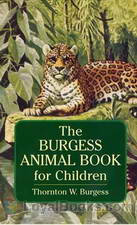 The Burgess Animal Book for Children
The Burgess Animal Book for Children
Peter Rabbit goes to school, with Mother Nature as his teacher. In this zoology book for children, Thornton W. Burgess describes the mammals of North America in the form of an entertaining story, including plenty of detail but omitting long scientific names. There is an emphasis on conservation. | |
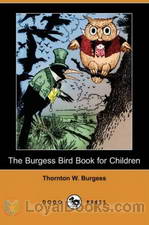 The Burgess Bird Book for Children
The Burgess Bird Book for Children
The Burgess Bird Book for Children is a zoology book written in the form of a story featuring Peter Rabbit. Peter learns from his friend Jenny Wren all about the birds of North America, and we meet many of them in the Old Orchard, the Green Meadow, and the Green Forest. | |
By: Jean-Jacques Rousseau (1712-1778) | |
|---|---|
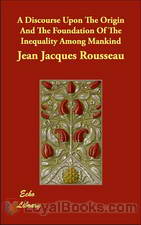 A Discourse Upon the Origin and the Foundation of the Inequality Among Mankind
A Discourse Upon the Origin and the Foundation of the Inequality Among Mankind
This work presents Rousseau’s belief in the profoundly transformational effects of the development of civilization on human nature, which Rousseau claims other political philosophers had failed to grasp. Specifically, before the onset of civilization, according to Rousseau, natural man lived a contented, solitary life, naturally good and happy. It is only with the onset of civilization, Rousseau claims, that humans become social beings, and, concomitant with their civilization, natural man becomes corrupted with the social vices of pride, vanity, greed and servility. | |
 The Social Contract
The Social Contract
The Social Contract outlines Rousseau’s views on political justice, explaining how a just and legitimate state is to be founded, organized and administered. Rousseau sets forth, in his characteristically brazen and iconoclastic manner, the case for direct democracy, while simultaneously casting every other form of government as illegitimate and tantamount to slavery. Often hailed as a revolutionary document which sparked the French Revolution, The Social Contract serves both to inculcate dissatisfaction with actually-existing governments and to allow its readers to envision and desire a radically different form of political and social organization. (Summary by Eric Jonas) | |
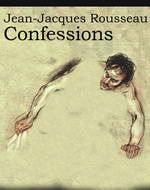 Confessions
Confessions
Considered to mark the emergence of a new literary form, the unvarnished autobiography, Confessions by Jean-Jacques Rousseau was first published in 1782, four years after his death. The philosopher and educationist whose political philosophy is credited with having inspired the French Revolution, Rousseau was a man of immense wit, talent and depth of thinking. His skill in art, music, literature and cooking along with his magnificent body of work in philosophy, politics, education and sociology have made him a legendary figure... | |
 Émile or, Concerning Education; Extracts
Émile or, Concerning Education; Extracts
| |
By: Abraham Lincoln (1809-1865) | |
|---|---|
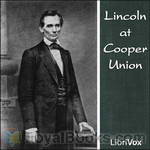 Lincoln at Cooper Union
Lincoln at Cooper Union
On 27 February 1860, Abraham Lincoln gave this address at the Cooper Union in New York City. When he gave the speech, Lincoln was considered by many to be just a country lawyer. After he gave the speech, he soon became his party’s nominee for president. | |